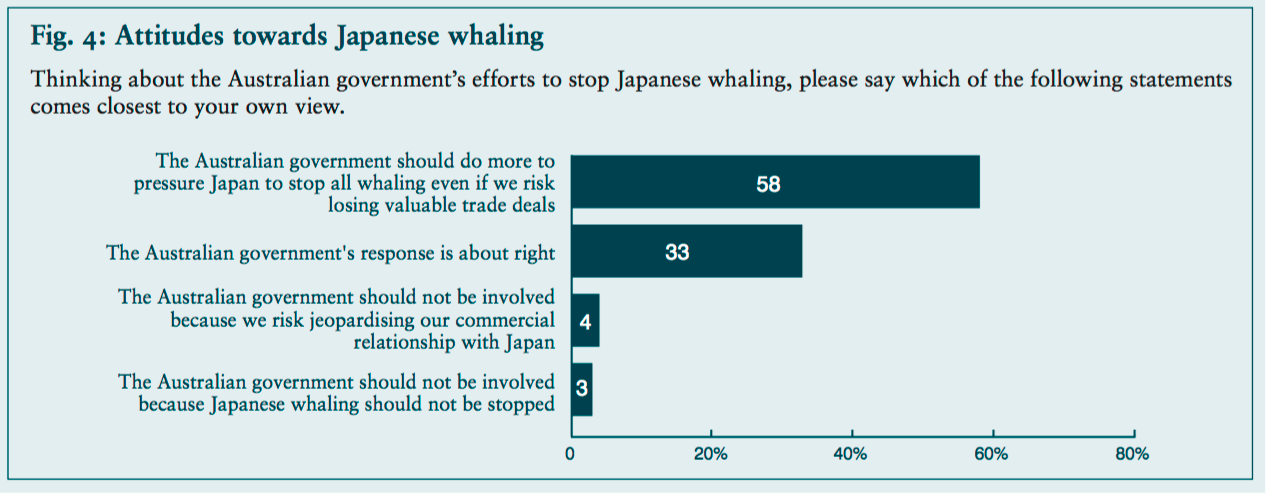Japan’s whale hunters are expected home any day, carrying up to 300 minke whales killed in the Southern Ocean. A harpoon ship, Yushin Maru No. 2, quietly slipped into Shiogama Port on Saturday, while the giant abattoir ship Nisshin Maru is still at sea (with its marine tracking monitor turned off) but likely to sail into Shimonoseki shortly for a welcoming ceremony.
In years past, the whale slaughter was a big summer story in the Australian media. But after Sea Shepherd activists called off their protest campaign this summer, the Japanese whaling fleet has roamed Antarctic waters unimpeded. No witnesses meant no photos of distressed whales to spur public outrage, as distinct from attitudes measured here, in 2008.

The absence of publicity will undoubtedly make Australia–Japan ties simpler. But this faux Japanese “research” isn’t going to stop anytime soon.
Just as Malcolm Turnbull paid a visit to Shinzo Abe in Tokyo in January, Japan announced plans to construct a new factory ship for future whale harvests. Tokyo has already skirted the ruling of the International Court of Justice (in defiance of a “rules-based order”) and is routinely stubborn in the International Whaling Commission.
Sea Shepherd, meanwhile, has targeted its efforts elsewhere, in ways that could still cause a diplomatic headache for Australia.
For some years, Sea Shepherd has been serving as a kind of mercenary navy off the west coast of Africa, patrolling fishing grounds for the tiny nation of Gabon. Armed Gabonese marines were allowed onto the activist vessels to arrest illegal fishing boats. A similar campaign was mounted in Liberia, and now with the navy in Tanzania.
This same model was trialled last year off the coast of Timor Leste, with fascinating results. Sea Shepherd helped the Timorese intercept a fleet of Chinese fishing vessels poaching thousands of sharks. This same Chinese company had earlier been busted for suspected illegal harvesting.
These protest campaigns are not without risks. Sea Shepherd revels in their pirate guise, but it’s one thing to race a speedboat across the bow of a whaling ship, and quite another to ferry armed soldiers at sea. Maybe an illegal fisherman shoots back, or maybe a soldier gets trigger happy.
Or maybe – and this is where Australian diplomacy comes in – China takes exception to a Chinese company being targeted by the activists.
During the years of the whale protests, some Japanese officials were known to complain that Australia effectively haboured terrorists by allowing Sea Shepherd to dock ships in Australian ports. If the Australian Government found managing ties with Japan difficult while trying to satisfy public opposition to whaling at home, a fight with China about overfishing will be awkward indeed.

